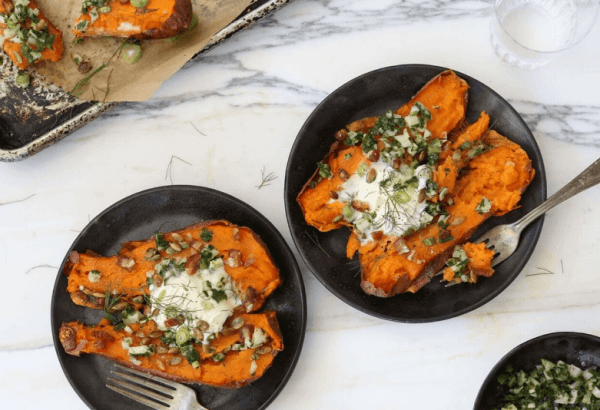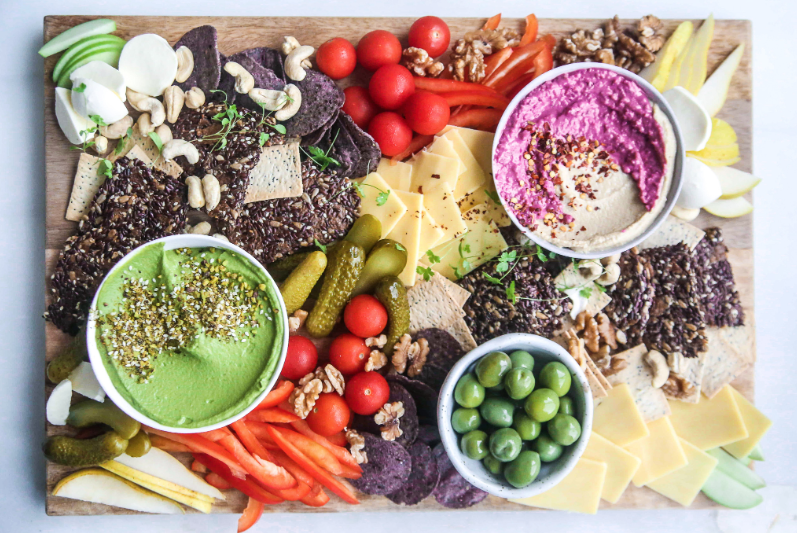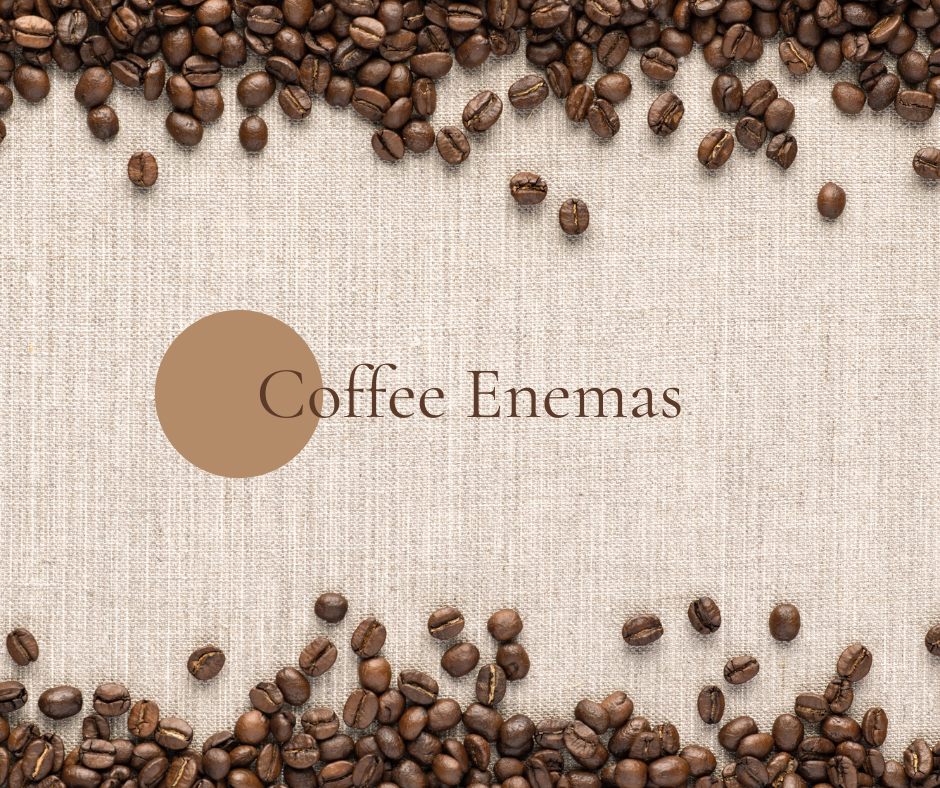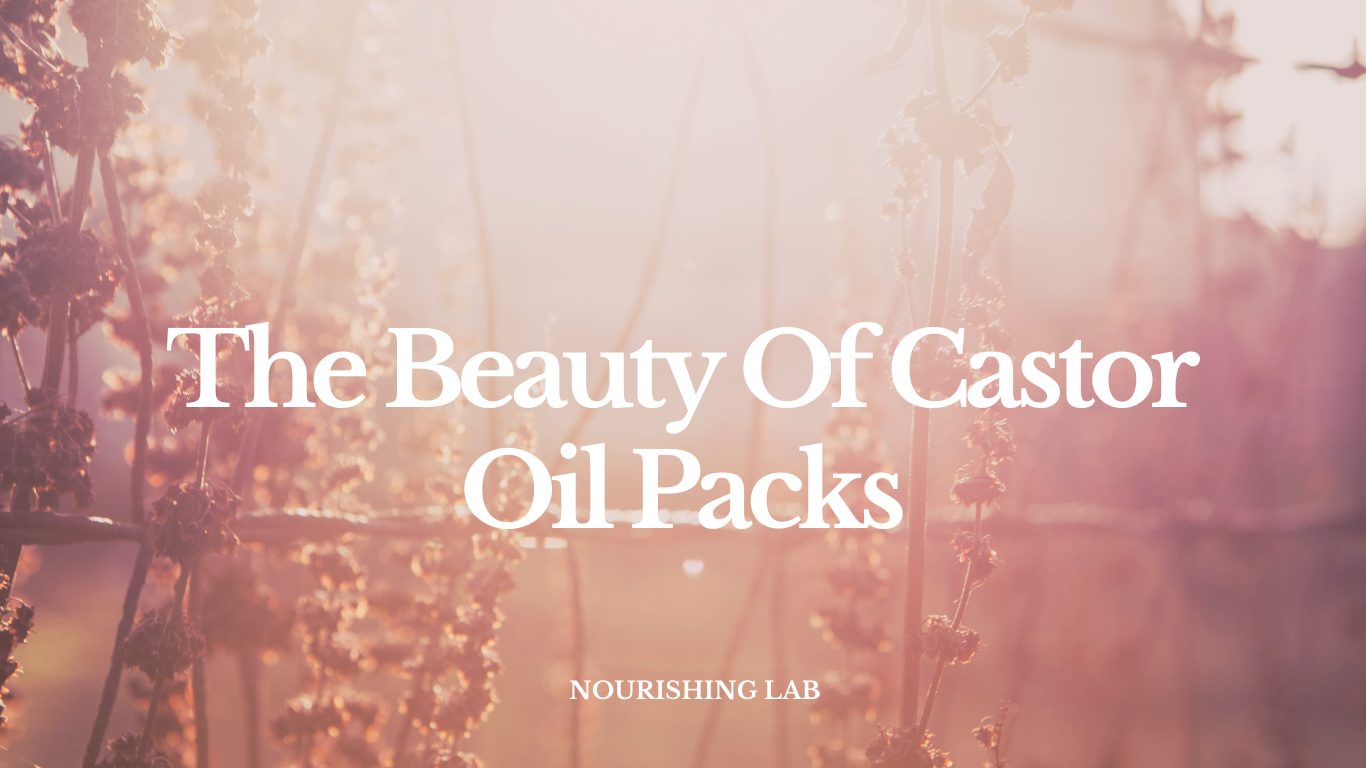

Now that we’re past the holidays, our bodies need a reboot. Along with bone broth, there are many ways to incorporate healthy, anti-inflammatory foods to your daily menu. While we often plan on making better choices, it can be difficult navigating the grocery aisle. Deciding which foods are better than others for combatting inflammation takes some prior knowledge!
So, here is my guide to some easy swaps to heal your gut:
Instead of Balsamic Vinegar, use:
Bragg’s Apple Cider Vinegar
Balsamic vinegar does not contain beneficial bacteria, and many commercial brands contain white vinegar with caramel color to appear like balsamic vinegar. Bragg’s apple cider vinegar is unfiltered, unheated, unpasteurized, and contains the Mother of Vinegar. It has a long history of health benefits, including beneficial bacteria to fight inflammation, improve heart health, and help you loose weight. It’s made from apple juice with added yeast. By adding yeast, it turns the sugars into alcohol – this is the fermentation process. Bacteria then turn the alcohol into acetic acid, giving it a sour taste and strong smell.
I add 2 teaspoons of apple cider vinegar to 8 ounces of water every morning.
Bragg Organic Unfiltered Apple Cider Vinegar, Raw, 16 Ounce
Instead of Sriracha Sauce, use:
Turmeric
While I love Sriracha, it contains sugar and salt – which can lead to more inflammation. Turmeric will add spice to any meal while also reducing inflammation. Curcumin is the active ingredient in turmeric, and it has been linked to the management of inflammatory conditions such as arthritis, asthma, eczema, and inflammatory bowel disease.
Check out turmeric milk!
Instead of White Potatoes, use:
Sweet Potatoes
Sweet potatoes are rich in beta-carotene, which help fight free radical damage in the body. They can also improve blood sugar regulation, even though they are rated “medium” on the glycemic index. They are also high in fiber, which helps with blood sugar regulation.
You can add sweet potatoes to your smoothies, desserts or just simply bake them in the oven.
Try out sweet potato fries!
Instead of Peanut Butter, use:
Almond Butter or Chia Seeds
Almonds are high in vitamin E, B, and magnesium, which can bolster your immune system when stressed. Almonds may help reduce LDL cholesterol, according to a Harvard review study. They contain heart healthy monounsaturated and polyunsaturated fat, as well as fiber. Chia seeds are rich in Omega-3 essential fatty acids, which are known to reduce the risk of heart disease and fight inflammation.
I use almond butter on gluten free toast, in my smoothies, or add it as a spread on vegetables. Chia seeds can be added to granola, smoothies, sauces, or sprinkled on a salad.
Try almond butter granola bars!
Maple Almond Butter by Justin’s, Gluten-free
Instead of Corn or Canola Oil, use:
Virgin Olive Oil
Olive oil is rich in omega-3 essential fatty acids that protect against oxidative stress and heal our blood vessels. Corn and canola oil are rich in omega-6 essential fatty acids. The Standard American Diet (SAD) is often too high with these fatty acids, which can lead to inflammation and high blood sugar. When purchasing olive oil, you want to look for both an expiration date and a production date. The first press is the highest quality, and in most cases, this is your “extra virgin” olive oil. After the first press the quality starts to get lower… And never buy olive oil in a clear glass bottle, always a dark bottle!
Instead of Cow’s Milk Cheese, use:
Goat Cheese
Cow’s milk cheese contains casein, a protein similar to gluten, and this can lead to inflammation and congestion for many people. Goat cheese is easier to digest because it has less lactose and a different protein structure than cow’s milk.
Instead of Sugar, use:
Manuka Honey
Sugar is a major offender in the battle against inflammation and fighting blood sugar levels. Manuka honey is honey produced in New Zealand by bees that pollinate the manuka bush. It is one of the most unique and beneficial forms of honey, and has been used for thousands of years for medicinal purposes. It has been shown to help with SIBO (Small Intestine Bacterial Overgrowth), low stomach acid, and acid reflux. It aids in IBS and IBD treatment, helps with allergies, improves sleep, and treats ulcers. The raw unfiltered manuka honey is rich in B vitamins, copper, amino acids, magnesium, potassium, phosphorous, and zinc. Its nutritional content is four times that of normal honey.
I recommend this manuka honey!
Instead of Earl Gray Tea, use:
Ginger or Peppermint Tea
Peppermint tea soothes digestion and relaxes the esophageal sphincter, which can help improve digestion. An improved digestive tract leads to reduced inflammation. Ginger tea stimulates digestion and increases peristalsis, the movement of food through your gut – another way to improve digestion.
I recommend Traditional Medicinals Organic Peppermint or Traditional Medicinal Organic Ginger Tea







